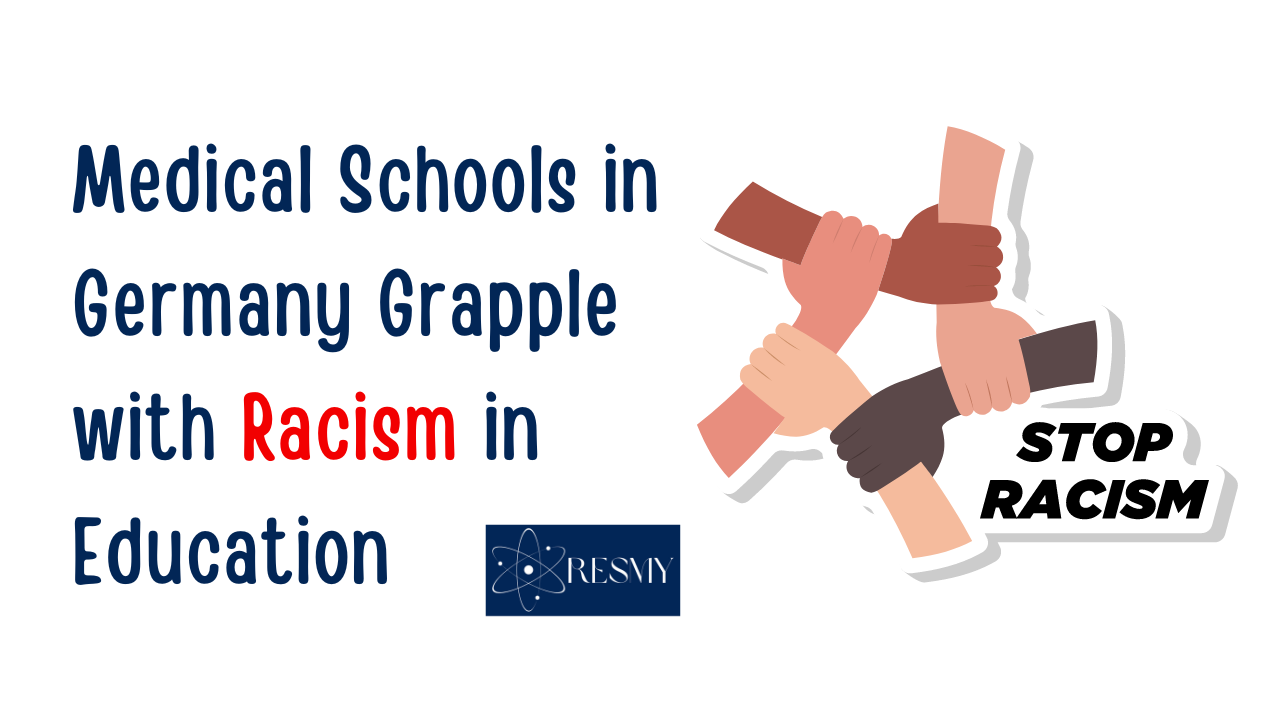For the first time, Germany’s National Competence Based Catalogue of Learning Objectives for Undergraduate Medical Education (NKLM) explicitly acknowledges racism as a crucial topic. This long-overdue recognition reflects a growing global discussion about discrimination in healthcare. However, a new study reveals a gap between this acknowledgement and the reality of German medical education.
The Problem: Racism in Healthcare
While ethical codes emphasize non-discrimination, racism persists in healthcare systems worldwide. In Germany, research on the topic remains limited, and medical education has largely neglected it, focusing primarily on historical aspects.
The Study: Medical Students’ Awareness
This study, conducted by medical ethicists, is the first to explore German medical students’ perspectives on racism in healthcare. Researchers aimed to identify problems and learning needs in medical education.
Key Findings:
- Medical students widely perceive racism as a pervasive issue in German medicine.
- They report difficulty identifying and addressing racism, particularly at a structural level.
- Students lack confidence in dealing with witnessed or experienced racism.
- They believe medical education has a responsibility to tackle this issue.
Looking Abroad: Learning from Others
The study aligns with international findings regarding the prevalence of racism and the challenges of addressing it in medicine. Researchers suggest drawing upon existing antiracist curriculum recommendations from other countries, particularly the US. However, adapting these approaches requires considering Germany’s unique historical and cultural context.
The German Context: Addressing Specific Challenges
Germany’s approach to race differs from other nations. The term “migration background” is more commonly used, and the social sciences offer more developed discourses on racism than the medical field. This necessitates incorporating concepts like “constructivist race theory” and historical understandings of colonialism into antiracist education.
Study Limitations and Researcher Acknowledgement
The research team acknowledges limitations. The sample size was moderate, and some participants had prior interest in racism. Further quantitative research is needed for a more comprehensive picture. Additionally, the researchers recognize their own social position as a potential influence on the study.
Moving Forward: Recommendations for Change
Despite these limitations, the study offers valuable insights:
- Comprehensive Antiracist Action: Racism needs to be tackled on multiple levels, including academic and clinical settings, and at both individual and institutional scales.
- Enhanced Education: Medical students require antiracist education throughout their studies and professional development, focusing on identifying and addressing both overt and structural racism, including the social determinants of health.
- Institutional Support: Medical schools need to create accessible systems for reporting racism and dismantle racism within their own structures, addressing hidden curriculum issues and fostering a feedback culture.
- Student Participation: Medical students’ diverse perspectives and suggestions can contribute to innovative curriculum development.
Conclusion: The Need for Antiracist Medical Education
This study underscores the importance of integrating antiracist education into German medical curricula, as mandated by the NKLM. However, it also emphasizes the need to go beyond curriculum changes. Medical schools must commit to addressing racism at an institutional level for true change to occur. By acknowledging the experiences of medical students and implementing comprehensive anti-racism initiatives, Germany’s healthcare system can work towards a more equitable future for all patients.
Source: here
Other Topics: Medicine and Health Science, Natural Science, Agricultural Science, Engineering & Technology, Social Sciences & Humanities

